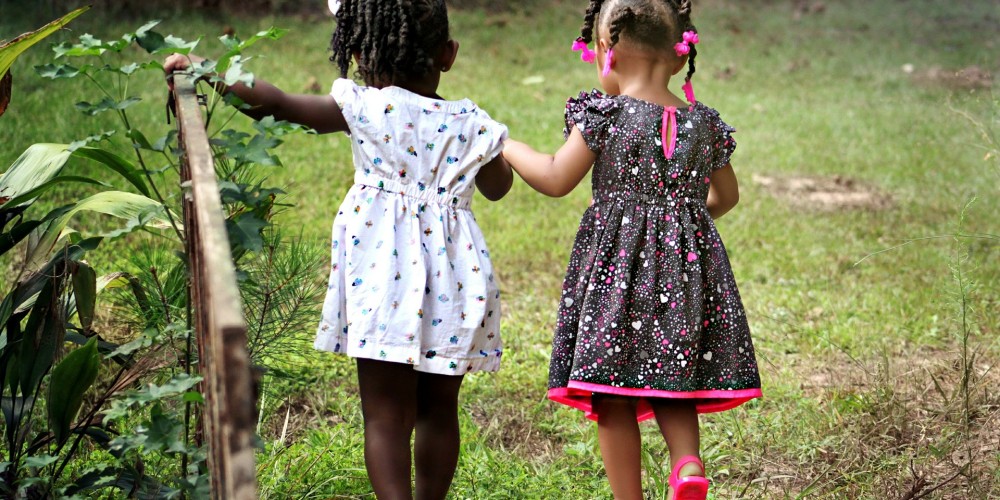Humanity unites us; insanity divides us

This is a story about two mothers.
The two women live side by side. They are neighbours. Each has a child, of similar age. The children go to the same school. The two mothers are often at each other’s houses, since they have much in common.
They discuss the school, its teachers, their children’s nutrition, the prices in the shops, their husbands, the state of the neighbourhood. Their lives are virtually identical, you see. They contain the same daily routines, the same occasional dramas, the same challenges and tribulations, the same sources of fulfilment and joy. They could be sisters, these two women, so alike are they. They feel each other’s pain; they share their happinesses. When one’s child is unwell, the other comes running with remedies. They are two humans in near-identical circumstances. They might stay bonded for as long as they are alive.
But wait, there is something I forgot to mention. One is a Kikuyu, and the other is a Luo. Or one is of African origin, the other is Asian.
In Kenya, that makes all the difference. It means that whatever daily bonding the two women share, they can never really be kindred. They may have many, many identities in common – their motherhood, their daily routines, their occupations – but the identity that matters in these parts holds them forever separate. Their ethnicity ultimately overwhelms all other identities.
The two women really like each other. But that’s not enough. Each one hears the whispers. Of the injustices of long ago. Of stereotypes. They are like that, we are not. Their people did this to our people. We can’t forgive them. You should be careful. Don’t get too close. You can’t trust them. They don’t think like us.
The whispers come from many sources. From the husbands; from community groups; from elders and pastors; from friends and relatives. There are too many to be ignored or shrugged off. They seep in. They infiltrate. They colour. They poison. They introduce suspicion where there was none before.
A beautiful friendship must be abandoned, or at least trammelled and restrained. For no real reason, other than my people don’t like their people.
I asked many years ago, after the tragic ethnic violence that ripped through this country following an election: why do we “miniaturise” our lives in this way? The word comes from Amartya Sen’s notable book, Identity and Violence. Professor Sen pointed out that we belong to many, many groups in our lives, of which our ethnicity is only one. Why then do we permit the reduction to just one identity?
I wrote here in 2008: “Being vast is the natural state of the human, so why should we make ourselves tiny? When you define yourself only by your religion or your tribe, what have you done? Picked the identities you had no choice in – those that were accidents of birth. That is what we have been doing here in Kenya for all these years.
If you define yourself solely by the fact that you are a Kikuyu, you are committing an act of imbecility. This mental apartheid may cause you to become an irrational supremacist. If you think you begin and end in your “Luo-ness”, then you will be prone to crazed intolerance and resentment. If your “Muhindi-ness” is what delineates your life and chooses your friends and associates for you, then you will be small of heart and slight of mind.”
I am repeating those words this Sunday because another election approaches, and those who benefit from beating the drums of divisive ethnicity are at it again. The whispers are in full flow, entering many an ear: don’t trust them. The whispers come from those who benefit from division and mistrust; those who win elections by corralling their voters into ethnic blocs. They come from manipulative warlords.
Friedrich Nietzsche put it well. “Insanity in individuals is something rare – but in groups, parties, nations and epochs, it is the rule.” The whispers make you deny the oneness of humanity, and force you to climb into a tiny little box – a coffin for your heart and mind – where insanity reigns. Those who are crazed by the smallness of their existence seek to spread their insanity.
Switch this nonsense off. Return to your essence, which is to be in communion with all living creatures. Rejoice in the fundamental sameness of the human experience, not in its petty little differences.
(Sunday Nation, 26 June 2016)

Buy Sunny Bindra's new book
The X in CX
here »
Popular Posts
- Make this your year of being boringJanuary 4, 2026
- Can we please stop with the corporate jargon?January 11, 2026
- My books of the yearDecember 14, 2025
- Confessions of an explaining personDecember 7, 2025
- Here’s why you should become foolishNovember 30, 2025















